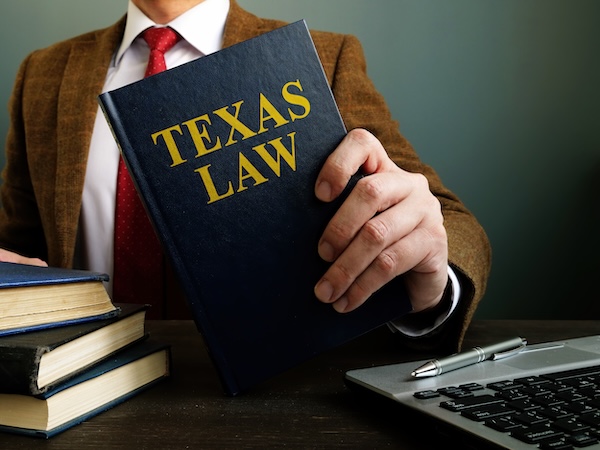Understanding the Impact of Texas’ Three Strikes Law on Your Case
Facing felony charges in Texas can be overwhelming, especially if you have a history of prior felony convictions. Under the Texas Three Strikes Law, individuals with two previous felony convictions who are charged with a third felony face significant legal consequences.
This law is designed to target habitual offenders by imposing harsher punishments, including mandatory minimum sentences and the possibility of a life sentence. Whether the current charge is a violent felony like aggravated assault or a nonviolent felony such as state jail felonies, the impact of previous convictions cannot be underestimated.
Understanding how the three strikes law applies to your case is crucial, as it could drastically affect the outcome of your legal situation. If you are convicted of a third felony, the law may result in a life in prison sentence, regardless of the severity of the current offense. This is why it’s essential to seek the guidance of an experienced criminal defense attorney. They can help you navigate the complexities of Texas law, protect your rights, and work to achieve a favorable outcome in the face of three felony convictions.
Understanding the Texas Three Strikes Law
The Texas Three Strikes Law is a policy designed to impose severe penalties on individuals with multiple felony convictions. It targets habitual offenders, or those who have been convicted of felonies multiple times, by enforcing progressively harsher sentences for each subsequent conviction. This law aims to act as a deterrent, ensuring that individuals with a history of criminal behavior face longer prison sentences, discouraging them from committing future crimes.
The law’s primary goal is to protect society by keeping individuals who pose a continuous threat off the streets for extended periods. After a person is convicted of a third felony, the Texas Three Strikes Law can result in life imprisonment or extremely long sentences, depending on the nature of the offense. By sentencing repeat offenders to such severe punishments, the law seeks to reduce crime and keep dangerous individuals incarcerated for the safety of the public.
How Strikes are Determined
The Texas Three Strikes Law targets repeat offenders and imposes severe penalties for individuals convicted of multiple felonies. Understanding how “strikes” are determined is crucial, as it directly impacts whether the law applies to your case.
A “strike” is any felony conviction, with the exception of state jail felonies. These are typically the least severe felony offenses in Texas, and they do not count as strikes under the law. The law mainly applies to more serious felonies, which include:
- First-degree felonies: These are the most serious felonies, often involving violent crimes like aggravated assault, sexual assault, and murder. A conviction for a first-degree felony counts as a strike.
- Second-degree felonies: These include crimes like aggravated robbery or drug trafficking. A conviction for a second-degree felony also counts as a strike.
- Third-degree felonies: Although less severe, third-degree felonies still count as strikes. These offenses include theft of property over a certain value or drug possession.
Impact of Prior Felony Convictions
Prior felony convictions are a critical factor in determining strikes. Even if a person has been convicted of a third-degree felony, it still contributes to the individual’s total number of strikes. All felony convictions, regardless of their severity, count toward the three strikes threshold.
Out-of-State Felony Convictions
An important aspect of the law is that felony convictions from other states also count toward the three strikes in Texas. This means that if someone has a criminal history in another state, those prior felony convictions will be considered when determining whether the individual has accumulated three strikes, possibly leading to harsher penalties.
Consequences of Three Strikes
Once an individual is convicted of a third felony, the Texas Three Strikes Law can result in a mandatory life sentence or an extended prison sentence, regardless of whether the third offense is a violent felony or a nonviolent felony. Understanding how strikes are determined helps individuals with past convictions better understand the potential impact on their future criminal cases.
Consequences of a Third Strike
A third felony conviction in Texas can result in a mandatory minimum sentence of 25 years to life in prison. Once an individual reaches their third strike, the penalties become much more severe, and the law enforces long-term imprisonment for repeat offenders. The severity of the penalty can vary depending on the type of felony and the circumstances of the case, but the consequences are significant.
Regardless of whether the third felony is a first-degree felony, second-degree felony, or third-degree felony, a third strike can lead to life imprisonment or a prison sentence ranging from 25 to 99 years. This penalty applies even if the third offense is less severe compared to the previous felonies. Additionally, fines of up to $10,000 can also be imposed in some cases, further increasing the financial burden on the individual. The consequences of a third strike are designed to deter repeat offenders and ensure they are removed from society for an extended period.
Defending Against a Third Strike
Defending against a third strike conviction can be challenging, but there are several legal strategies that may help mitigate the consequences. Below are a few defense options that may be utilized in an effort to reduce the severity of the penalties.
Challenging the Validity of Prior Convictions
One common defense strategy is challenging the validity of prior convictions. If any of the previous convictions used to count as strikes were obtained improperly or if there is reason to believe they were wrongly adjudicated, they may be disqualified from counting toward the three strikes. By questioning the legitimacy of prior convictions, a defense attorney may be able to prevent the third strike from triggering the harsh penalties.
Arguing Lack of Intent
Another defense could involve arguing a lack of intent behind the third felony. This is particularly relevant if the crime was nonviolent or lesser in nature. For instance, if the defendant can demonstrate that they did not have the intent to commit the crime or that their actions were out of character, this could reduce the likelihood of facing a life sentence.
Presenting Mitigating Evidence
Presenting evidence that may mitigate the circumstances of the offense can also play a significant role in defending against a third strike. This may include showing that the defendant was under duress or had no prior intent to commit a crime, or providing evidence of personal circumstances, such as mental health issues or other factors that may have contributed to the crime. This type of evidence could potentially lead to a reduction in the severity of the sentence.
Role of an Experienced Criminal Defense Attorney
A skilled attorney can help develop a strong defense strategy to avoid the harsh consequences of a third strike. Experienced criminal defense attorneys are well-versed in the intricacies of Texas’ Three Strikes Law and can help identify potential legal issues in the case, including problems with prior convictions, a lack of intent, or the possibility of mitigating circumstances. They will work to provide the best possible defense for the defendant.
A successful defense strategy can make a significant difference in the outcome of the case, possibly preventing a life sentence or extended prison time. The assistance of a competent attorney is critical to navigating the complexities of a third strike charge and seeking a favorable result.
Serious Offenses and the Three Strikes Law
The Texas Three Strikes Law is specifically designed to target serious or violent felonies, which can result in severe consequences for repeat offenders. It applies to crimes such as sexual assault, aggravated assault, robbery, and homicide. These types of crimes are considered high-risk offenses due to the significant harm they cause to victims and the potential danger to public safety. As a result, the law imposes harsher penalties for individuals who commit multiple violent felonies.
A third strike for a serious offense can result in life imprisonment or extremely long sentences, ranging from 25 to 99 years, depending on the nature of the felony and the circumstances of the case. Regardless of whether the third felony is a first-degree felony or second-degree felony, the three strikes law mandates severe consequences for repeat offenders.
Understanding which felonies are subject to this law is crucial because a third strike for a violent felony can lead to life-altering consequences, including the possibility of spending the rest of one’s life in prison.
Why Choose Cowboy Law Group to Help You
When facing the severe consequences of the Texas Three Strikes Law, it’s crucial to have an experienced legal team on your side. Here’s why Cowboy Law Group is the right choice for you:
- Expertise in Criminal Defense:
Our team of experienced criminal defense attorneys has a proven track record in handling habitual offender cases and three strikes charges. We know how to challenge prior convictions, argue mitigating factors, and develop strong defenses to achieve the best possible outcome. - Personalized Legal Strategies:
We take the time to understand your case and create a defense strategy tailored to your unique situation. Whether facing a violent felony charge or a nonviolent offense, we work to minimize the impact of a third strike conviction. - Compassionate and Dedicated Support:
At Cowboy Law Group, we provide compassionate, personalized support throughout the legal process. We’re here to answer your questions, guide you, and help you navigate this challenging situation with confidence. - Proven Results:
With a history of successful outcomes for clients facing serious felony charges, our attorneys are dedicated to protecting your rights and your future. Whether negotiating or representing you in court, we work tirelessly to achieve the best possible results.
Contact Cowboy Law Group for Experienced Legal Defense
If you or someone you know is facing a third strike conviction in Texas, the consequences can be life-changing. With the possibility of a life sentence or extended prison time, it is crucial to have an experienced legal team by your side to navigate the complexities of the Texas Three Strikes Law. At Cowboy Law Group, we are dedicated to providing aggressive and effective legal defense, ensuring that your rights are protected and your future is secured.
Our team of skilled attorneys has extensive experience defending clients against the severe penalties associated with habitual offender statutes and third felony convictions. We will carefully evaluate the details of your case, challenge prior convictions if possible, and develop a strategy tailored to your specific situation.
Contact us today to schedule a consultation and discuss your legal options. With our help, you may be able to avoid the harshest penalties and fight for a favorable outcome.
Don’t face this battle alone—reach out to Cowboy Law Group now at 832-326-2932 to take the first step toward a brighter future.







